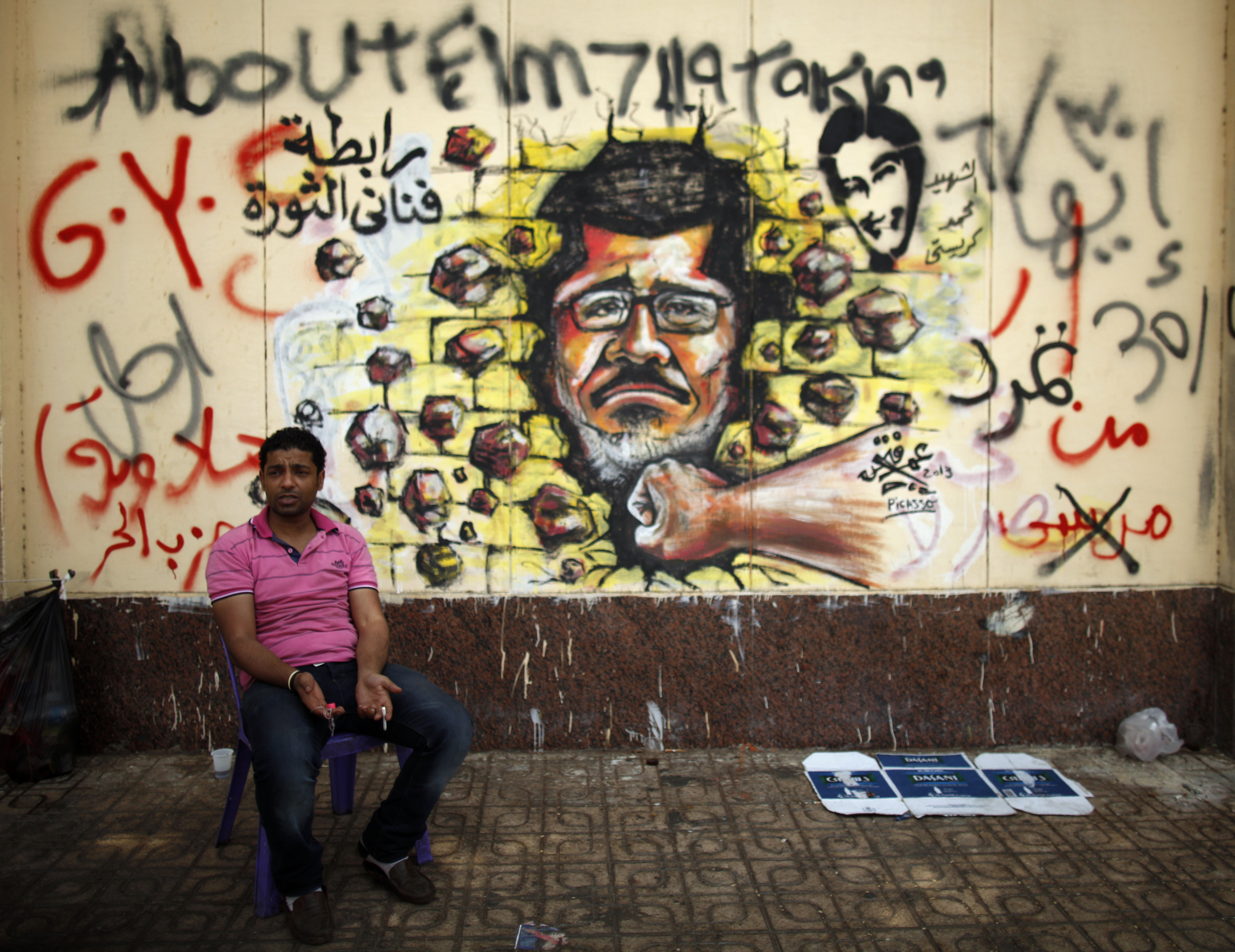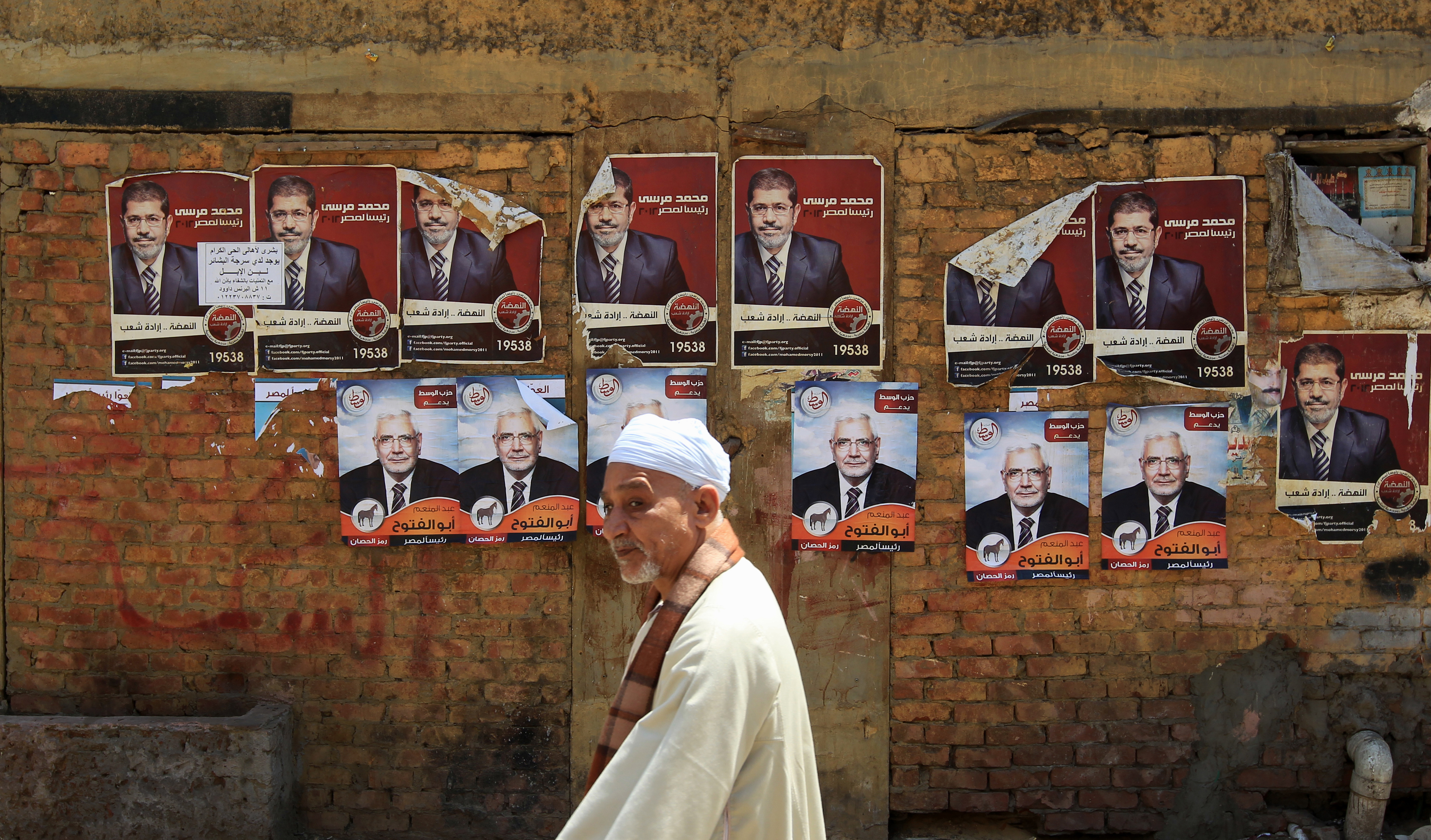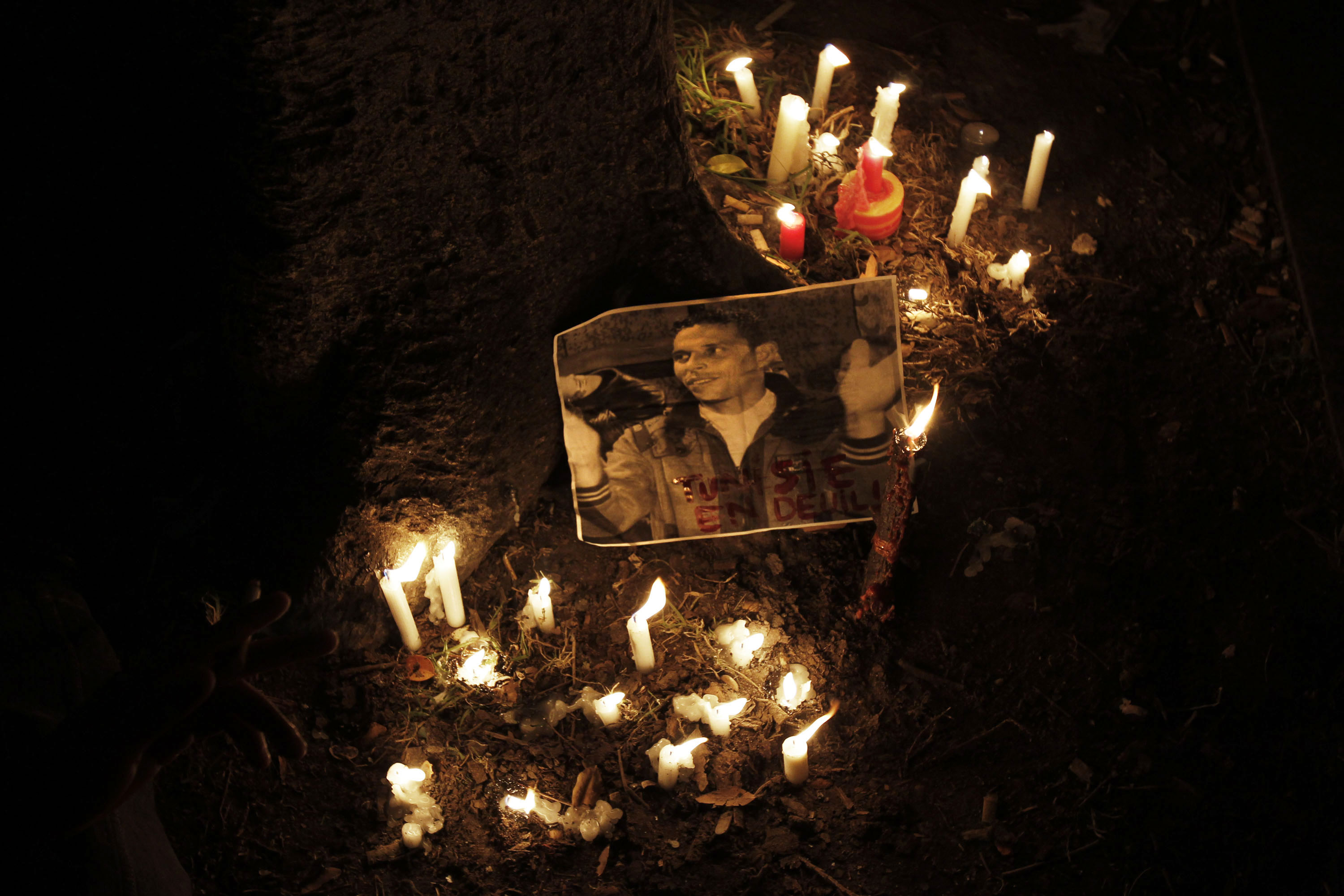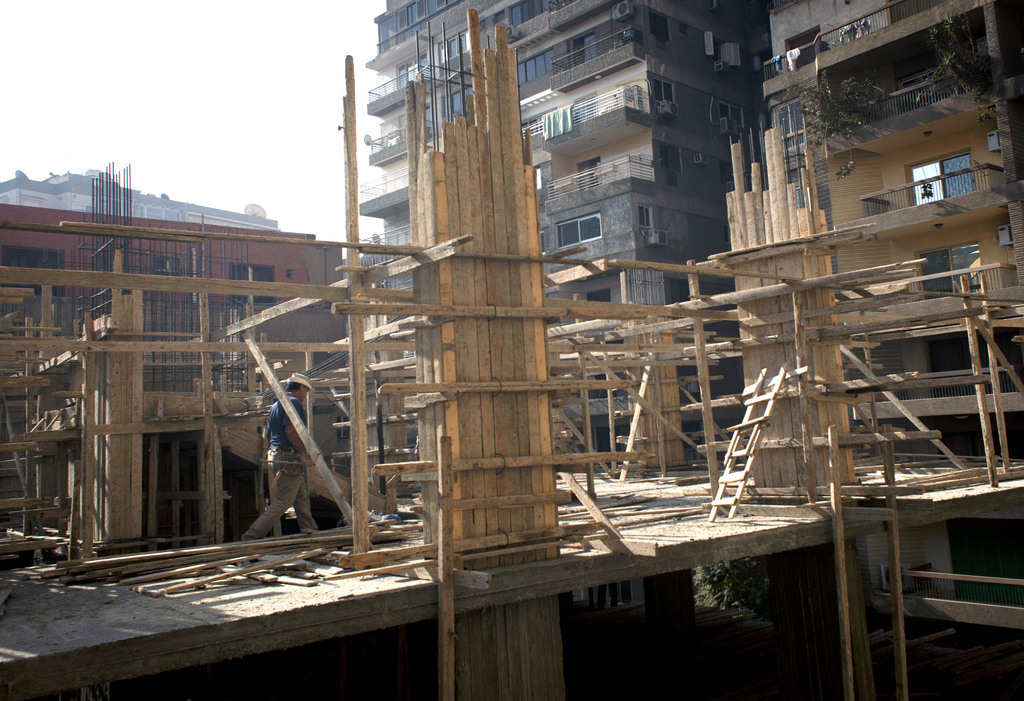Newspapers mull Mursi’s ousting

Swiss newspapers have not condemned Mohamed Mursi's removal, stressing that the army’s intervention was backed by millions of Egyptians. Experts warn that what happened in Cairo on Wednesday may be replicated in other Arab countries.
“The Egyptian army checkmated President Mohamed Mursi step by step,” proclaimed Zurich’s tabloid newspaper Blick. In its article, “The army pushes Mursi away”, the newspaper stated that the Muslim Brotherhood have suffered a “bitter defeat” just one year after their electoral victory.
Zurich’s Neue Zürcher Zeitung (NZZ) wrote in a commentary entitled “The Muslim Brother’s missed rendezvous with power” that the Brotherhood never understood the revolution, nor democracy, and that it now has to fear its demise. “The Brotherhood must understand today that the pact with the generals was just an illusion,” the newspaper commented.
The Egyptian Muslim Brothers tried to win power through a deal with the military, but it was not the army that had the power, according to the NZZ. “In revolutionary situations, power is not distributed in the backrooms, but in the streets,” the paper said.
Already in 2011, “Mubarak’s fall showed the Egyptians that a million-fold protest is stronger than deals among the alleged ruling powers,” the NZZ wrote. There were not only the traditional revolutionaries in the streets but many who had kept silent up until now, the newspaper wrote.
The Swiss foreign ministry has urged all sides in Egypt to seek political solutions to the crisis and to avoid a further escalation of violence, according to a statement issued on Thursday.
Switzerland noted “with concern” that the Egyptian constitution had been suspended and that the president was removed from office by the Egyptian armed forces.
“Switzerland expects to see a swift return to democracy in which all the social forces in the country are involved and in which fundamental human rights are respected,” the ministry said.
Switzerland “expresses the hope that a peaceful solution can be found to the current political polarisation in Egypt and it calls on all sides to renounce the use of violence”.
The ministry recommends that tourists should limit themselves to the seaside resorts on the Red Sea and to tourist centres in Upper Egypt. Caution should be exercised and demonstrations and large gatherings of any kind should be avoided.
History’s largest demonstration
In an interview with Le Temps, Egypt expert Alexandre Stärker said that Wednesday’s event was not a coup but “the largest demonstration in world history, with millions of people in the streets”.
About 80 per cent of protesters did not demonstrate against the Muslim Brotherhood as such but against their failure to keep their promises, Stärker said. “It is not Al-Sissi who is in command, but the young people. The real Arab Spring is about to begin.”
According to Zurich’s Tages-Anzeiger, Mohamed Mursi committed a fatal error: The Brotherhood did not understand their election victory as an obligation but as a “free ticket”.
The Tages-Anzeiger commented that “the fact that the political fate of the Muslim Brotherhood was not mentioned shows that they will be excluded from further political processes.”
“The Muslim Brothers have missed an historic opportunity. Their failure is dramatic, and their defeat seems final. Once again they can expect to be persecuted, jailed and killed,” the NZZ wrote.
In an interview with Swiss television SRF, Islam expert Reinhard Schulze said that Mursi’s “greatest mistake was to believe that the Muslim Brotherhood would be able to take over the state as a political party”.
June 16-17, 2012: Mohamed Mursi, the Muslim Brotherhood candidate, wins with 51.7 percent of the vote in a presidential runoff.
November 22, 2012: Mursi unilaterally decrees greater powers for himself. A month later he ratifies the controversial new constitution, which has been approved by referendum.
January 27, 2013: President Mursi reestablishes a state of emergency in Port Said and other cities following clashes. By February unrest has spread to the capital, Cairo, with protesters calling for Mursi to go.
May 7, 2013: Mursi reshuffles his Cabinet. More power is given to the Muslim Brotherhood.
June 30, 2013: Millions of Egyptians demonstrate, calling for Mursi to step down. Protests continue over the next days.
July 3, 2013: Mursi is removed from office by the army.

In compliance with the JTI standards
More: SWI swissinfo.ch certified by the Journalism Trust Initiative



You can find an overview of ongoing debates with our journalists here. Please join us!
If you want to start a conversation about a topic raised in this article or want to report factual errors, email us at english@swissinfo.ch.